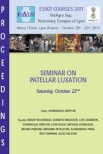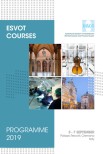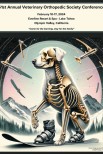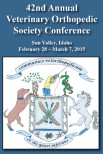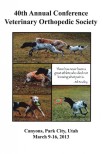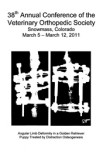There is controversy over whether bone or cartilage is primarily involved in osteoarthritis (OA) pathogenesis; this is important for targeting early interventions.
We explored evidence from animal models of knee OA by preforming a systematic review of PubMed, SCOPUS and Web of Science for original articles reporting subchondral bone and cartilage pathology in animal models with epiphyseal closure. Extracted data included: method of induction; animal model; cartilage and bone assessment and method; meniscal assessment; skeletal maturity; controls; and time points assessed. Quality scoring was performed. Best evidence was synthesized from high quality, skeletally mature models, without direct trauma to tissues of interest and with multiple time-points.
Results: altogether 2849 abstracts were reviewed. Forty-seven papers were included reporting eight different methods of inducing OA, six different species, six different methods of assessing cartilage, five different bone structural parameters and four assessed meniscus as a potential initiator. Overall, simultaneous onset of OA in cartilage and bone was reported in 82% of data sets, 16% reported bone onset and 2% reported cartilage onset. No data set containing meniscal data reported meniscal onset. However, using best evidence synthesis (n=8), five reported simultaneous onset when OA was induced while three reported bone onset when OA occurred spontaneously; none reported cartilage onset.
In summary, there is a paucity of well-designed studies in this area which makes the conclusions drawn conjectures rather than proven certainties. However, within the limitation of data quality, this review suggests that in animal models, structural onset of knee OA occurs either in bone prior to cartilage pathology or simultaneously.
